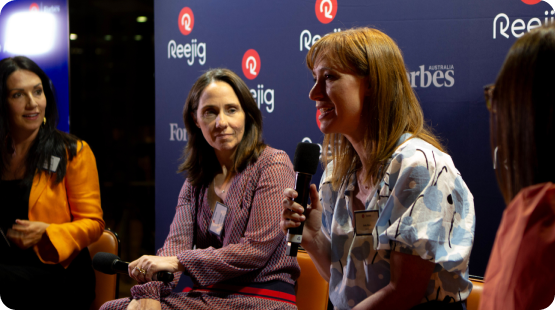Creating a Cultural Shift for Continuous Workforce Evolution
Blog Post Body
Table of Contents
Talk to a Work Strategist
See the Work Operating System in action and start re-engineering work for AI.
Subscribe to our newsletter
The latest insights on re-engineering work for AI
You can implement all the shiny new toys you want—tech and automation galore—but without a fundamental shift in mindset across your teams, your workforce strategies will only get you so far.
In our latest Skills Connect episode with Sally Elson, Chief People Officer at MYOB, we discussed why cultivating a culture of continuous evolution is crucial. The future workforce isn’t something you prepare for once and then forget about. It’s an ongoing journey that requires everyone—employees and leaders alike—to keep evolving.
Why continuous evolution is non-negotiable
In today’s business world, change is the only constant. Sally stressed that leaders need to create a culture of continuous evolution, where learning agility is prioritized over static skill sets. As she said, “We’re always changing. It’s just, how do you make sure you’re understanding the opportunities right in front of us and taking them up?”
This means moving beyond traditional, one-off training programs. It’s about embedding learning and adaptability into the very DNA of your organization. It’s not just about “keeping up”; it’s about building a workforce ready to pivot and adapt, no matter what comes next.
As leaders, it’s on us to foster an environment where curiosity and experimentation are celebrated, not feared. The bottom line? Companies that champion this mindset will thrive, while those that don’t will struggle to keep up.
Fostering a mindset of continuous learning
Creating a culture of continuous evolution isn’t about forcing people to learn new skills just for the sake of it. It’s about making learning a natural, enjoyable part of everyday work life. Here’s how we can get started:
👉 Encourage Curiosity Curiosity sparks innovation. Encourage your teams to ask questions, explore new ideas, and challenge the status quo. Recognize and reward those who seek out new knowledge or try new approaches.
👉 Normalize Failure Fear of failure can be one of the biggest roadblocks to learning. Create a safe space where mistakes are seen as stepping stones, not setbacks. When leaders show vulnerability and admit they don’t have all the answers, it sets the tone for everyone else to feel comfortable doing the same.
👉 Promote Cross-Functional Experiences Don’t let job titles become barriers. Encourage employees to explore different areas of the business, take on new projects, or even switch roles temporarily. The broader their experiences, the more adaptable they’ll be.
👉 Invest in Micro-Learning The days of week-long training sessions are over. Embrace bite-sized learning that fits seamlessly into the workday, like quick online courses or brief team learning sessions.
👉 Lead by Example Leaders need to walk the talk. Share your own learning journey—the books you’re reading, the courses you’re taking, and the mistakes you’ve made. When your team sees your commitment to growth, they’ll be inspired to follow suit.
Encouraging Experimentation & Embracing Mistakes
The future of work isn’t a final destination— it’s an ongoing journey. The most successful companies aren’t just rolling with the punches—they’re setting the pace. And that means creating a culture where experimentation is encouraged, mistakes are seen as valuable lessons, and learning is woven into the fabric of everyday work.
The future belongs to those who are ready to seize it. Let’s build cultures that are prepared for whatever comes their way—every single day.
Sign up for our full email newsletter to get weekly resources, exclusive extras, and more delivered straight to your inbox. 📩
Talk to a Work Strategist
See the Work Operating System in action and start re-engineering work for AI.
Subscribe to our newsletter
The latest insights on re-engineering work for AI


